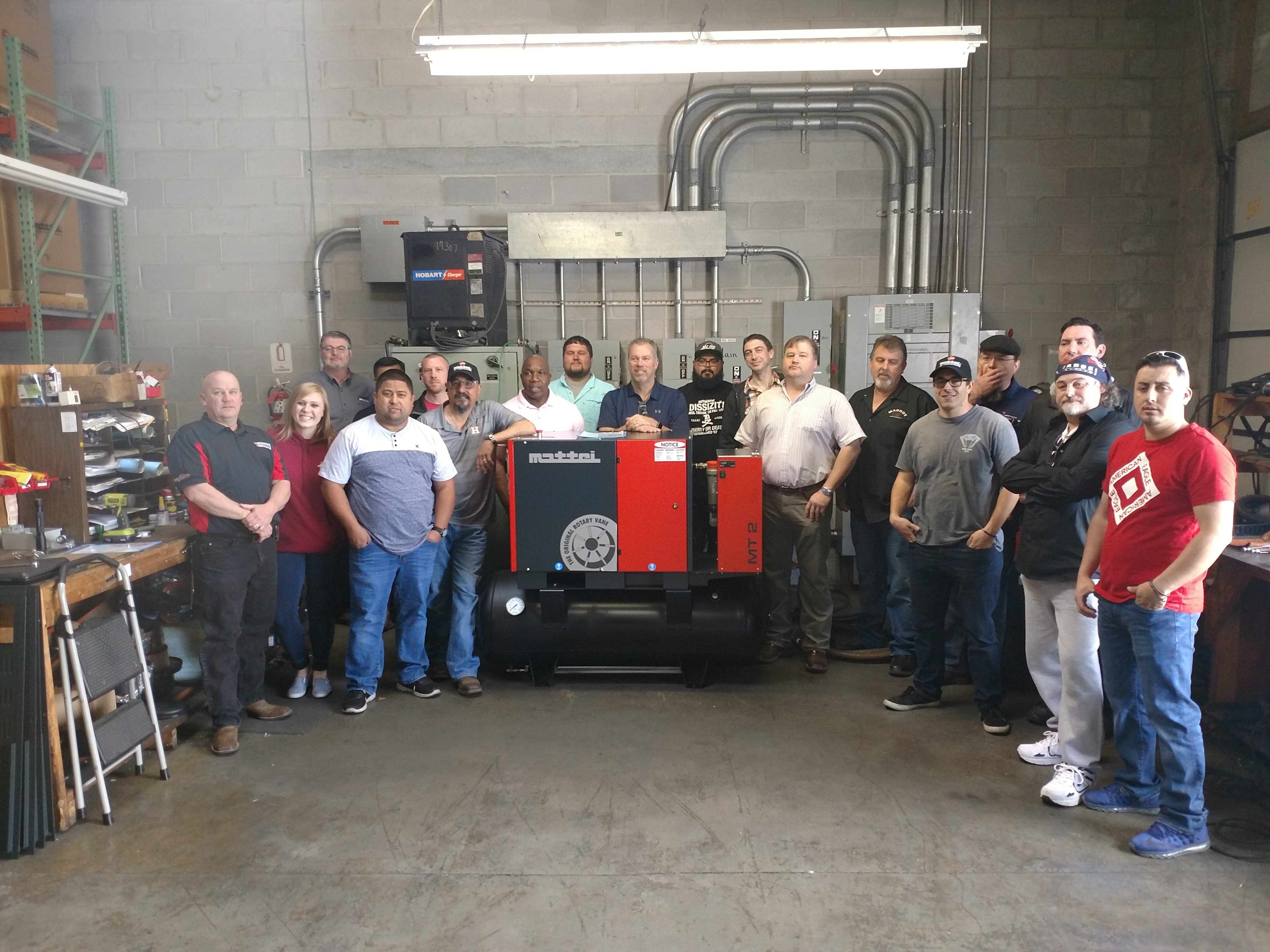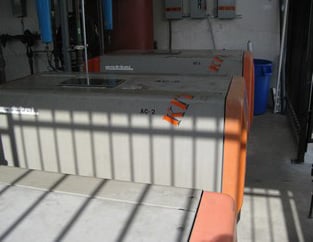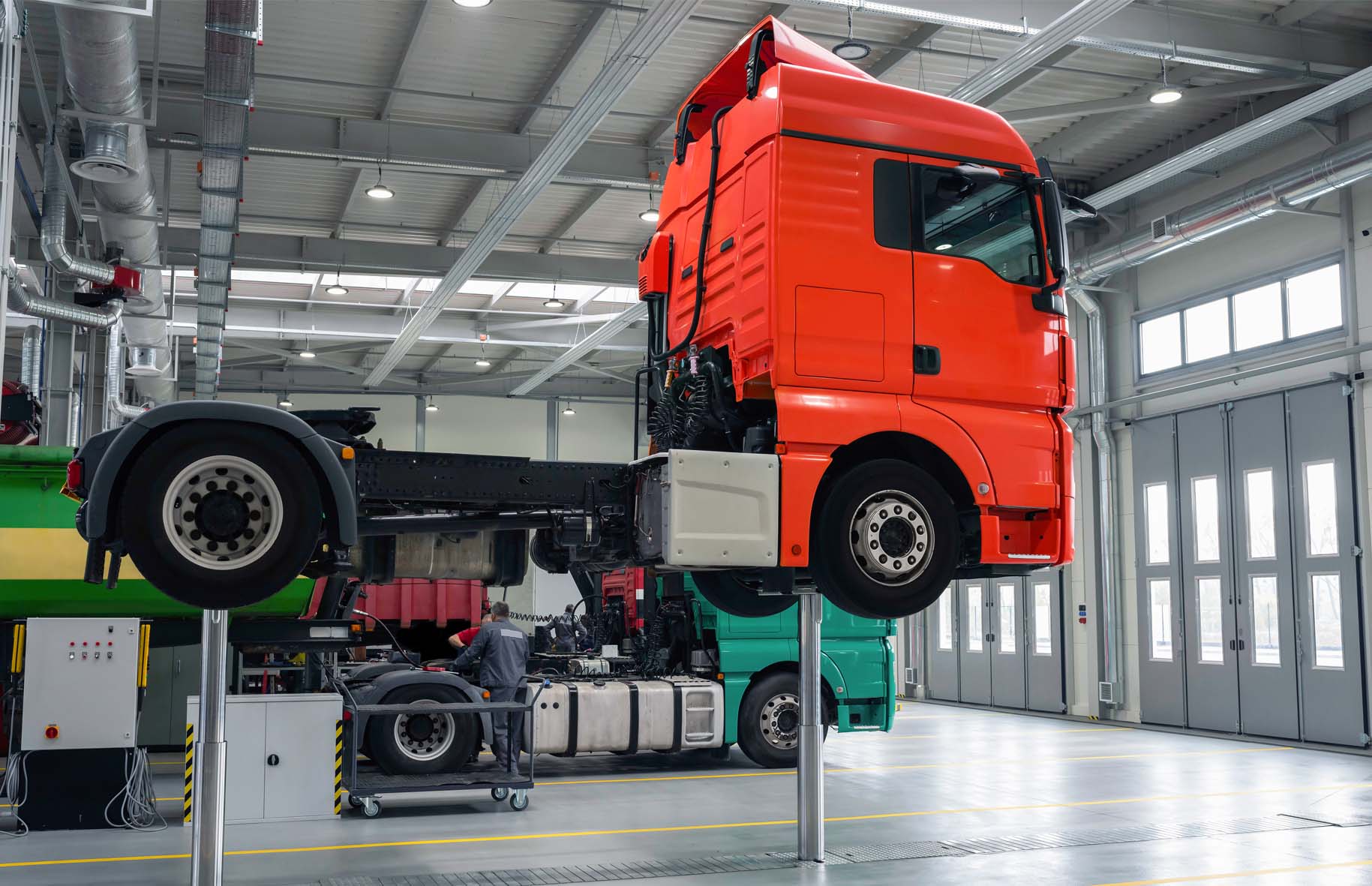Whether you need to store your compressed air system for a few weeks or a whole season, it’s crucial to know how to care for your machine in the meantime.
 Improper storage can lead to rusted or damaged parts and can diminished the overall performance of your compressor.
Improper storage can lead to rusted or damaged parts and can diminished the overall performance of your compressor. To ensure your machine operates with the same effectiveness and efficiency when you’re ready to turn it back on, follow these tips from industry experts on proper air compressor storage.
Before moving your compressed air system into storage, ensure you’ve prepared an adequate storage space. Find a clean, dry location to store your compressor where you can maximize space efficiency. You should almost always opt to store your compressor indoors, unless you can guarantee your compressor is stored in an outdoor area with a stable, regulated temperature and proper insulation. Basements are generally not recommended, as they are at risk of flooding, and storage sheds must be sufficiently insulated from harsh outdoor conditions that could lead to rusting.
Within your storage space, prepare a pallet to serve as a raised platform for your compressor to protect it from moisture damage from groundwater or condensation that may collect on the ground. If you need to transport your compressor to its designated storage location, make arrangements to rent a cart or hire a helping hand if need be.
2) Prep your air compressor.
To prepare your air compressor for storage, begin by switching it off. Reduce your machine’s air pressure with the regulator knob until it hits zero, then unplug the compressor from the wall. Alternatively, if your compressor operates on a battery, turn off your compressor and remove the battery— which should be kept in a similarly dry, clean storage space and ideally stored with a 40 percent remaining charge.
Once your air compressor is unplugged or your battery is removed for storage, remove any pneumatic tools or hoses attached to your air compressor. Since dust and particulate can stick to lubricants and wear your compressor’s motor, ensure you dust and clean your air compressor before storing it.
Finally, it’s crucial to drain your air compressor of any residual liquids which, if left inside the compressor, can cause rusting. Place a drainage pan beneath your compressor’s valve. Ensure the valve is positioned downward to allow any liquid to gather near the valve’s entrance. With the help of an assistant to hold the pan, open the valve part-way to release the liquid. Ensure that assistants are wearing protective gloves and keeping their hands away from the direct path of the valve, as residual air may exit at high pressure.
3) Have your compressor inspected.
Preparing your air compressor for storage offers an ideal opportunity for a professional audit. A professional servicer can identify any operational flaws or pre-existing wear to your compressor so that you have a comprehensive record of your machine’s state before it goes into storage. Evaluating your compressor’s energy efficiency, pressure performance, and all of its working parts — including valves, filters, and piping — guarantees that it will run smoothly whenever you decide to remove it from storage.
Finally, it’s necessary to monitor your storage space throughout the storage period to ensure that it remains clean and properly ventilated. Keep the area dry and out of direct sunlight. Your storage area should be kept at an ambient temperature of around 59 degrees Fahrenheit, and if you are storing a battery, ensure it is never stored in freezing temperatures or in conditions where temperatures exceed 100 degrees. Regularly sweep and dust the storage space to ensure grime and particulate cannot find their way into your compressor’s filters or openings.

Mattei offers a wide range of vane compressor models that perfectly meet the specific needs of the transport industry.

The reliability of Mattei compressors, the high quality standards of the delivered compressed air and the compliance with the industry regulations, make them ideal to be used in the healthcare and pharmaceutical industry.

Reduced operating costs, environmental sustainability and extreme purity of the air supplied make Mattei compressors suitable for all processes in the food industry.

Good luck ThorSport Racing. Waiting to watch the racing!

We recently held our Spring 2018 Service School for distributors. The school graduated 17 participants from both the sales and service sides.

Today, Mattei Compressors, Inc., announced the recipients of its 2017 Distributor Awards. These distributors went above and beyond to provide high-quality service to Mattei customers over the past year.

Helix Medical, LLC is widely regarded as a premier supplier of biocompatible silicone medical devices and components to the medical device, pharmaceutical and biotech industries.

John Baker Sales, a Mattei distributor located in Colorado, worked very closely with Transwest to ascertain the company’s needs prior to making a product recommendation.


